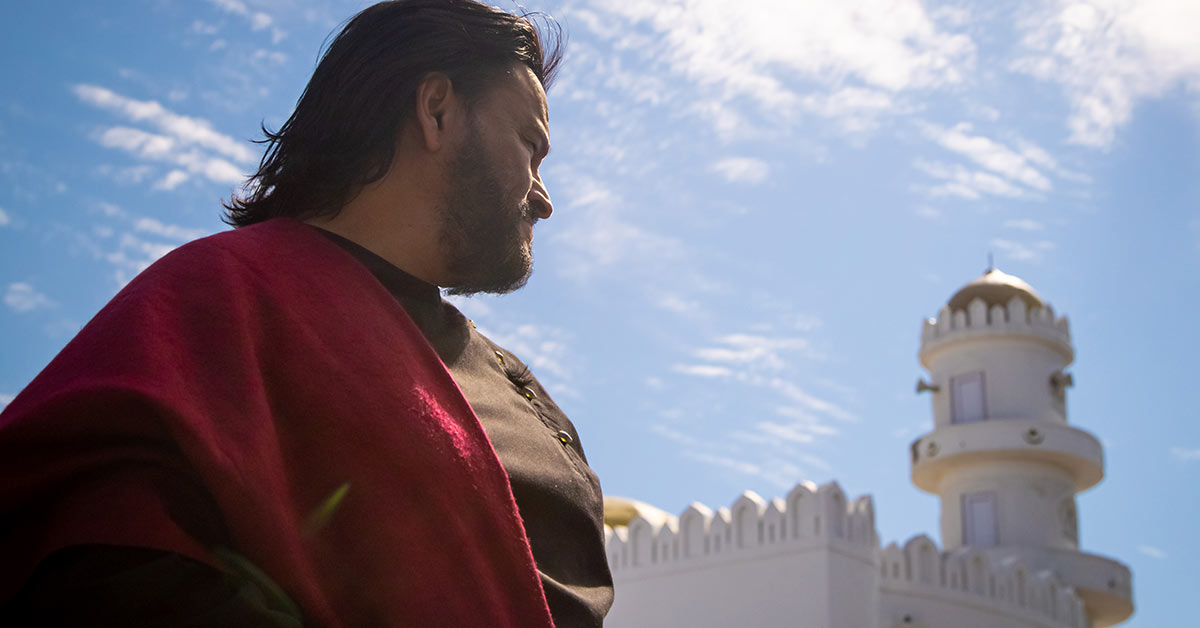SA Muslim Council: Gay Muslims must resist their desires

Capetonian Muhsin Hendricks – the world’s first openly gay imam – has condemned a new fatwa on homosexuality (Photo: Richard Finn Gregory)
The world’s first openly gay imam has warned that a new fatwa issued by the South African Muslim Judicial Council (MJC) that condemns homosexuality as sinful and unIslamic will further incite hatred towards queer people.
A fatwa is a ruling issued by religious leaders and scholars meant to inform members of the Muslim community about a point of Islamic law.
In a statement on Monday, just a few days after international Pride Month, the MJC said that engaging on “the LGBTQ issue” requires “a multi-faceted discussion including religious, socio-political, educational and many other dimensions, which are beyond the ambit of a short fatwa.”
Despite this, the council proceeded to assert its simplistic and uninformed position without any of the engagement it referred to. According to the fatwa, Islamic laws “unequivocally prohibit same-sex actions and, by extension, same-sex marriages.”
As a result, any Muslims who are in same-sex relationships or engage in same-sex sexuality will have “taken themselves out of the fold of Islam.” The council, however, believes that a gay Muslim who does not act on their desires” remains Muslim and “will be rewarded.”
“It is essential that those who are tested with such desire and who strive to uphold the law of Allah be commended for their struggle. [The] Muslim community should strive to include them in their gatherings of worship and social activities,” said the MJC.
The imams went on to assert the “right and duty” of Muslims to not expose children “to un-Islamic teachings that are detrimental to their faith.” It also urged the Muslim community to display good conduct when dealing “with non-Muslims belonging to the LGBTQ community,” adding that “our religion teaches us to hate the sin, not the sinner.”
“What about our need to be part of spiritual communities?”
Capetonian Muhsin Hendricks, described as the world’s first openly gay Imam, told Mamba that the fatwa was “very reactionary” and questioned why the MJC chose to issue it at this time.
He believes it is in response to the growing public visibility of International Pride Month as well as last month’s high-profile premiere of a documentary about his groundbreaking work to support queer Muslims, called The Radical.
“Of all the socio-political issues that the MJC could have tackled while our country is in turmoil, did they have to pick on homosexuality?” he asked. “It just causes harm. It’s a thoughtless statement when queer Muslims are struggling to reconcile their faith with their sexual orientation.”
Hendricks added: “The other issue that we have with the fatwa is that they use terminology like choice and desire, and that homosexuals should control their desires. I mean, are we just about desire? Is that all that homosexuality is about? What about our need to love who we are naturally attracted to? What about our need to also have families, to also be part of communities, to be part of spiritual communities?” said Hendricks.
“Although these imams are calling for people not to be violent, if you make a statement that a [queer] person is out of the fold of Islam, it will incite hate towards those people or people like myself.
“For many queer Muslims, sexual orientation or gender identity and the Islamic identity are intrinsic identities for them. So, it’s difficult for them to reconcile these two and it creates a spiritual cognitive dissonance that leads to suicidal tendencies and the number of mental health issues that we’ve experienced in the queer Muslim sector, or the queer sector as a whole.
“And so, fatwas like these are insensitive, and they just exacerbate the problem and retard our work in helping queer Muslims to really be integrated into society,” added Hendricks.
Thank you, Imam Miuhsin, for your willingness to stand on the right side of history and powerful groundbreaking work! LGBTQ+ just want to be able to live their lives as others do–finding love, having families and being human.